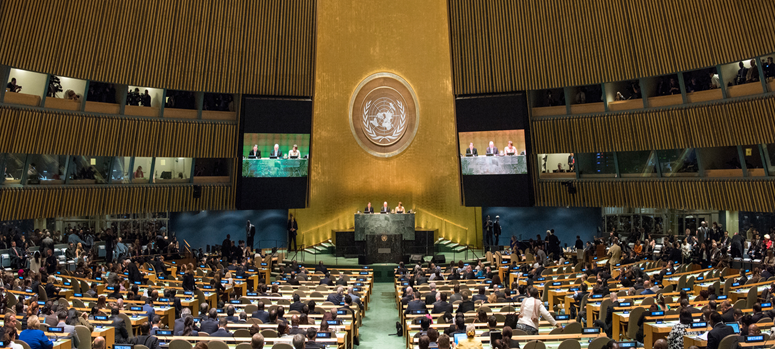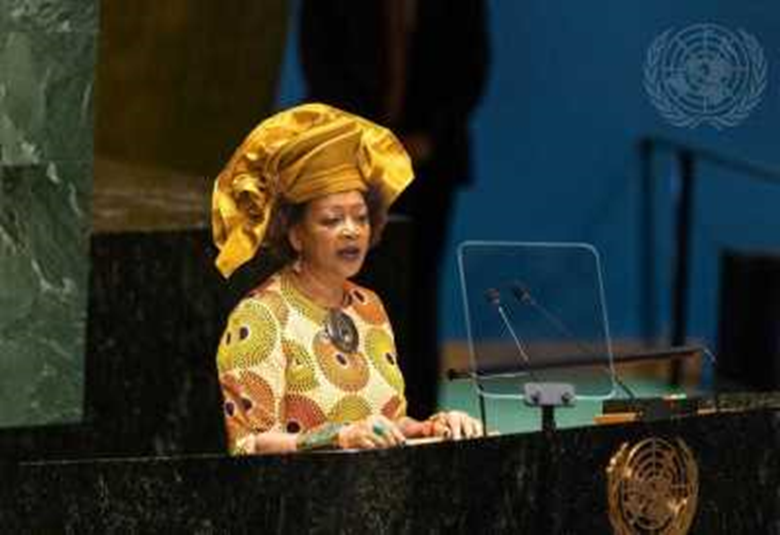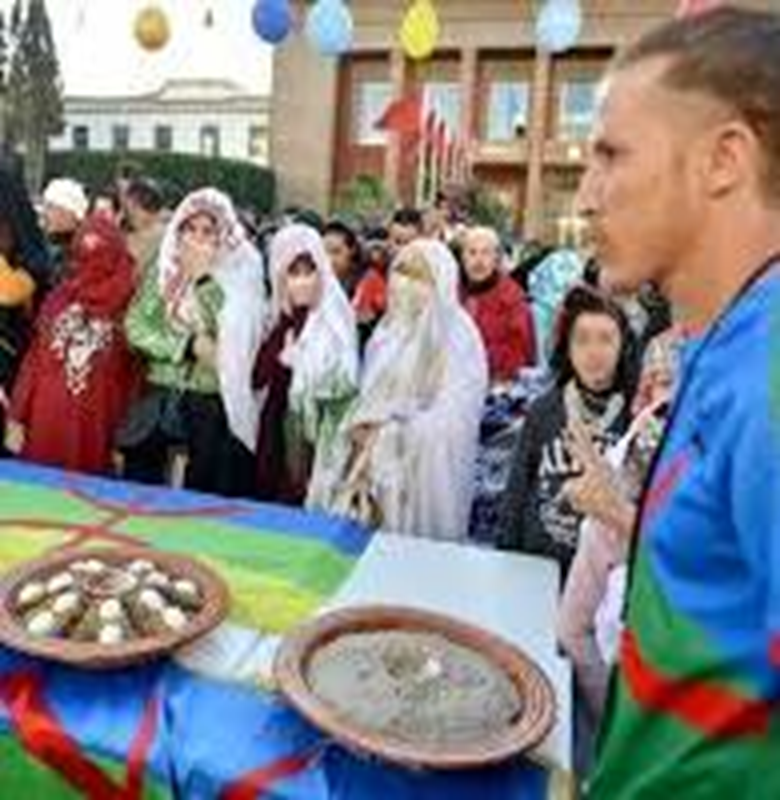The United Nations recommends that Morocco implement the requirements of the regulatory law to activate the official character of the Amazigh language

The United Nations Committee on the Elimination of Racial Discrimination ( CERD ) recommended that the Moroccan state intensify its efforts to implement the constitutional requirements and Regulatory Law No. 16-26 relating to defining the stages of activating the official nature of the Amazigh language and how to integrate it into the areas of education and priority areas of public life.
Through the concluding observations it recently published regarding Morocco’s report on periodic reports from the nineteenth to the twenty-first, the Committee expressed its concern about the lack of statistics on Amazigh representation in decision-making centers and in political life, especially with regard to Amazigh women.
During its study of Morocco’s report at its 3024th and 3026th sessions, held on November 22 and 23, and its 3043rd and 3044th sessions, held on December 5 and 6, 2023, it expressed its concerns about the poverty that particularly affects areas inhabited mainly by Amazighs, and the continued racial discrimination to which they are exposed, in particular In the field of access to employment, education and health services, especially when they do not speak Arabic;
The committee came up with a set of concluding observations regarding the issue of the Amazigh and their language, which we include in the following points:
Amazigh:
Taking into account the measures taken by the State party to improve the living conditions of the population, such as the Program for Reducing Spatial and Social Disparities in the Rural World (2017-2023), the Committee is concerned about:
A) The lack of statistics related to the representation of Amazighs, especially Amazigh women, in political life, especially in decision-making positions;
b) Poverty, which particularly affects areas inhabited mainly by Amazighs, and the continued racial discrimination to which they are exposed, especially in the area of access to work, education, and health services, especially when they do not speak the Arabic language;
c) Information on cases of border demarcation and confiscation of Amazigh communal lands without sufficient prior consultation with the affected population in the context of the implementation of development projects or extraction of natural resources, which disproportionately affect Amazigh women, in particular descendant women, who were allegedly victims of forced displacement and deprivation of compensation;
d) Alleged cases of police repression of demonstrations organized by Amazigh activists and human rights defenders, in particular in protest against the confiscation of their lands (Article 5).
The Committee recommends that the State party take the necessary measures to ensure that Amazigh people enjoy their full rights under conditions of equality and without discrimination, and in particular recommends that:

(a) Take measures to collect data disaggregated by sex and age regarding the participation of members of ethnic groups in political and public life, and intensify measures aimed at increasing their participation in these areas, in particular women belonging to these groups, and in particular in decision-making positions;
b) Redouble its efforts aimed at combating the poverty suffered by the Amazigh and ensuring their access to work, education and health services, without discrimination;
c) Protecting the Amazighs from confiscation of their lands and forced displacement, especially of ethnic women; Return confiscated lands or agree on appropriate compensation; Ensuring effective access to justice for victims; Conduct effective and useful prior consultations with the Amazigh before authorizing the implementation of any development program or exploitation of natural resources that is likely to have impacts on their lands;
d) Conduct investigations into all cases of excessive use of force by law enforcement officials against Amazigh activists, human rights defenders and demonstrators, and ensure that those responsible are prosecuted and, if convicted, punished appropriately for their actions, and that victims and their families receive appropriate compensation for the harm they have suffered;
e) Taking measures aimed at adopting special legislation to promote and protect human rights defenders, including those working in the field of combating racial discrimination, and on the rights of groups most exposed to this type of discrimination.
Amazigh language :
Taking into account the State party's recognition of the Amazigh language as an official language in the Constitution, the Committee is concerned about the weak teaching of the Amazigh language in schools; The limited status of Amazigh language programs within audiovisual media; The difficulties faced by the Amazigh in using their language during legal procedures and procedures, and sometimes in registering their births with Amazigh names. In addition to the limited use of the Amazigh language in official documents (Article 5).
Recalling its aforementioned concluding observations, the Committee recommends that the State party intensify its efforts to implement the constitutional requirements and Organic Law No. 16-26 relating to defining the stages of formalization of the Amazigh language and the modalities of its integration into education and priority areas of public life, and in particular recommends the following :
a) Increasing the pace of generalizing the teaching of the Amazigh language at all educational levels, including the pre-school stage, and increasing the number of teachers adequately trained to teach the Amazigh language;
b) Strengthening the presence of the Amazigh language and culture in the audio-visual media;
c) Review the legislative framework, in particular Law No. 15.38 on judicial organization, in light of the Constitution and Organic Law No. 16.26, which make Arabic and Amazigh official languages of the State Party, in a way that allows the adoption of the Amazigh language as is the case with the Arabic language before the courts, including: This is in the pleadings and rulings;
d) Work to ensure that employees of civil status offices respect the legal requirements related to the right of every citizen to choose and register a personal name for his or her child, including Amazigh names;

e) Redouble efforts to ensure the effective use of the Amazigh language in official documents, as stipulated in Regulatory Law No. 16.26, and in this regard, review Law No. 20.04 regarding the National Electronic Identification Card, which does not include a reference to the necessity of using the Amazigh language or alphabet within its provisions. Nor to the basic law mentioned above .
The United Nations Committee on the Elimination of Racial Discrimination ( CERD ), regretting the absence of data on the racial composition of the population of the State party, based on the principle of self-identification, recommends that the Moroccan State, with regard to the dissemination of information, make its reports available to the public upon submission as well as publish the Committee’s concluding observations on It shall be submitted to all state agencies responsible for implementing the Convention, including agencies, states, regions and communities, as well as published on the website of the Ministry of Foreign Affairs, African Cooperation and Moroccans Residing Abroad or on any other website available to the public in the official languages and other commonly used languages, as appropriate. .
Source : websites

